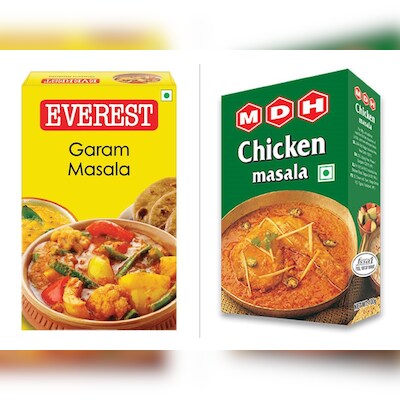FSSAI finds no traces of ethylene oxide in MDH, Everest spice samples
Photo of a pack of spices from Everest spices (left) and MDH spices | Photo: Everest spices website and MDH website
The Food Safety and Standards Authority of India (FSSAI) has not found any traces of cancer-causing Ethylene Oxide (ETO) in the samples of MDH and Everest spices, sources indicated on Tuesday.
As many as 28 samples have been cleared by the scientific panel at FSSAI, with no traces of ETO in them, said sources.
The regulator had collected nine samples of Everest spices from its manufacturing facilities in Maharashtra and Gujarat. As many as 25 samples of MDH spices were also collected from facilities in Delhi, Haryana, and Rajasthan.
While 28 lab reports have been received and examined, six are still awaited.
Each of the collected samples was analysed for compliance with quality parameters (like moisture, live and dead insect fragments, rodent contamination), safety parameters (heavy metals like lead, copper, tin), aflatoxins, melamine, 234 pesticide residues, macrobacteria, and additives. In addition, these samples were also analysed for ETO at NABL-accredited laboratories.
Earlier this month, sources had told Business Standard that the government will not hesitate to cancel licences of spice manufacturers if they are found to be flouting the norms for permissible limits for pesticide residue in packed products.
The food regulator, on April 22, had commissioned nationwide quality checks on spices in the market. This had come after the Centre for Food Safety (CFS) in Hong Kong and the Singapore Food Agency had flagged the presence of ETO in samples of pre-packaged spice mix products of two Indian brands—MDH and Everest Spices—and recalled them from the market.
“Pesticides like ETO are used for fumigation purposes to aid storage of these products. Ideally, products meant for export should not be directed to the domestic market,” an FSSAI official had said earlier.
The FSSAI had collected over 1,500 spice samples—from small and big brands—from across the country for the drive, a top official had told Business Standard.
First Published: May 21 2024 | 9:25 PM IST
